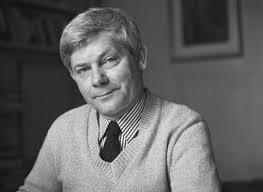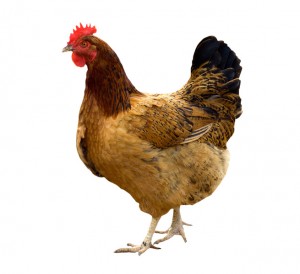The NY Times Book review this Sunday quoted from “Pebble,” a poem by the Polish poet, Zbigniew Herbert. Here is the poem in full:
 Pebble
Pebble
The pebble
is a perfect creature
equal to itself
mindful of its limits Continue reading “Translation”
The NY Times Book review this Sunday quoted from “Pebble,” a poem by the Polish poet, Zbigniew Herbert. Here is the poem in full:
 Pebble
PebbleThe pebble
is a perfect creature
equal to itself
mindful of its limits Continue reading “Translation”
This Polish poet is one of my favorites. He has many dark poems, having survived the second world war and the subsequent Soviet regime in Poland. But this is a light, acerbic little prose poem. I disagree with his assessment of the hen, though I love the poem.
The Hen
 The hen is the best example of what living constantly with humans leads to. She has completely lost the lightness and grace of a bird. Her tail sticks up over her protruding rump like a too large hat in bad taste. Her rare moments of ecstasy, when she stands on one leg and glues up her round eyes with filmy eyelids, are stunningly disgusting. And in addition, that parody of song, throat-slashed supplications over a thing unutterably comic: a round, white, maculated egg.
The hen is the best example of what living constantly with humans leads to. She has completely lost the lightness and grace of a bird. Her tail sticks up over her protruding rump like a too large hat in bad taste. Her rare moments of ecstasy, when she stands on one leg and glues up her round eyes with filmy eyelids, are stunningly disgusting. And in addition, that parody of song, throat-slashed supplications over a thing unutterably comic: a round, white, maculated egg.More typical is his poem, “Five Men.” This poem astonished me with its power when I first read it, perhaps 40 years ago. In an essay about another poem, Herbert said:
“If a school of literature existed, one of its basic exercises should be the description not of dreams but of objects. Beyond the artist’s reach, a world unfolds–difficult, dark, but real. One should not lose the faith that it can be captured in words…I do not turn to history to draw from it an easy lesson of hope, but to confront my experience with that of others, to acquire something I might call universal compassion, and also a sense of responsibility, responsibility for the state of my conscience.”
This poem seems to me to fulfill that responsibility.
five men
two of them very young
the others middle-aged
nothing more
can be said about them
2.
when the platoon
level their guns
everything suddenly appears
in the garish light
of obviousness
the yellow wall
the cold blue
the black wire on the wall
instead of a horizon
that is the moment
when the five senses rebel
they would gladly escape
like rats from a sinking ship
before the bullet reaches its destination
the eye will perceive the flight of the projectile
the ear record the steely rustle
the nostrils will be filled with biting smoke
a petal of blood will brush the palate
the touch will shrink and then slacken
now they lie on the ground
covered up to their eyes with shadow
the platoon walks away
their buttons straps
and steel helmets
are more alive
then those lying beside the wall
3.
I did not learn this today
I knew it before yesterday
so why have I been writing
unimportant poems on flowers
what did the five talk of
the night before the execution
of prophetic dreams
of an escapade in a brothel
of automobile parts
of a sea voyage
of how when he had spades
he ought not to have opened
of how vodka is best
after wine you get a headache
of girls
of fruits
of life
thus one can use in poetry
names of Greek shepherds
one can attempt to catch the color of morning sky
write of love
and also
once again
in dead earnest
offer to the betrayed world
a rose